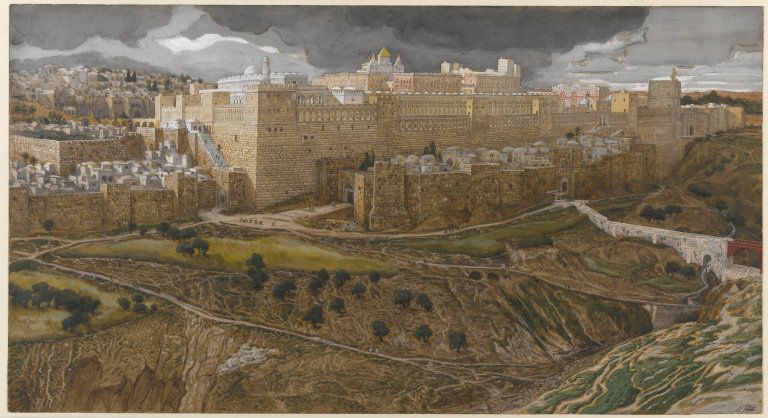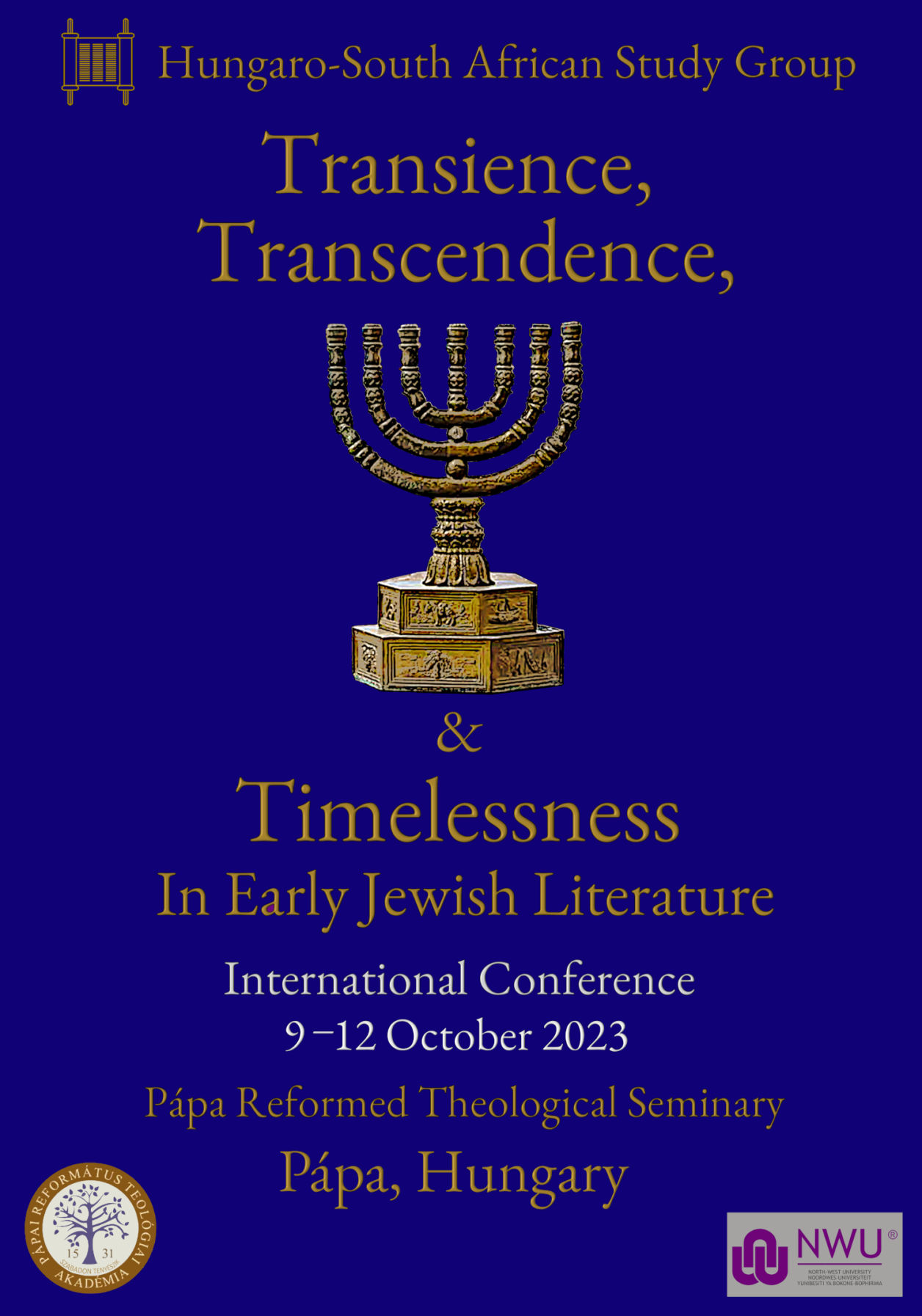Transience, Transcendence, & Timelessness in Early Jewish Literature
The HSASG (Hungaro-South African Study Group) was founded in 2016 and comprises a number of leading international scholars involved with, inter alia, research into various aspects of ancient and/or biblical texts. Most members are currently based at Hungarian and South African universities and seminaries.
For 2023 the HSASG's third international conference is proudly sponsored by the PRTA (Pápai Református Teológiai Akadémia) in Hungary and the NWU (North-West University) in South Africa. In this regard, this event will be hosted by the PRTA in Pápa (Hungary), between the 9th and 12th October, 2023.
The conference theme is deliberately intended to be interdisciplinary in nature and accordingly, this event is open to all scholars from a wide range of specialisms, including anthropology, biblical criticism, biblical theology, discourse rhetorics, historiography, narratology, practical theology, or systematic theology.
Transience and death are quite possibly the central concern for many people. Indeed, the fear of death and the attempts to counter it have underscored the worldview of human cultures and civilisations since time immemorial. However, in order to fear death we must be human. Only humans seem to focus on their transient state because they are constantly aware of their impending deaths and as Robert Burton once suggested, perhaps the “fear of death is worse than death”.
Religion has had a highly influential impact on the human understanding of death. In this context, inter alia, biblical texts have exhorted the notion that death is not to be feared because of a divine promise of a transcendent, paradisical and timeless existence beyond the grave. Anthropologists such as Bronisław Malinowski, have gone so far as to suggest that religion only originated as a direct consequence of belief systems, designed specifically, to reduce and/or overcome this universal fear of death.
Accordingly, Transience, Transcendence and Timelessness in Early Jewish Literature, proposes to explore the mortality of humans and their hope for future life from an ancient Jewish perspective. Here, we are inviting scholars from a range of specialisms and biblical traditions (e.g., Masoretic Text, Septuagint, Pseudepigrapha, Deuterocanonical literature, Apocrypha, Cognate literature, and Rabbinic literature) to explore ancient Jewish concepts that not only envisaged a transcendent deity, but also looked more broadly at human dignity in timeless, divine majesty.

James Jacques Joseph Tissot: Reconstitution du temple d'Hérode, Angle sud-est. (c. 1890) gouache over graphite on grey wove paper. 22.5 x 41.6 cm. Brooklyn Museum artwork ID: 13390. Online Collection of Brooklyn Museum, 2006, 00.159.7_PS1.jpg. This image was uploaded by the Brooklyn Museum as a content partnership, and is considered to have no known copyright restrictions by the institutions of the Brooklyn Museum.
Suggested Areas of Research
The following are some examples of research topics that would be applicable to the conference theme:
- Contrasting the fragility, mortality and transience of humans as opposed to the concept of a timeless, omnibevolent, omniscient and omnipotent deity.
- Belief / faith in divine assurances of eternal, transcendent reward for righteousness, compliance and ritual purity.
- Belief / fear of eternal punishment for profligacy and / or assumed heterodoxy.
- Notions that exhort the dignity and value that an omnibenevolent deity places on humans.
- Research on the evolution of Jewish theologies (e.g. apocalypticism and eschatology), that began to increasingly prioritise beliefs in afterlife / resurrection / reincarnation / reanimation as a justified response to seemingly perpetual foreign oppression and ever-present death.

